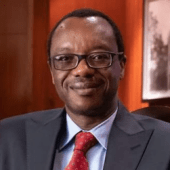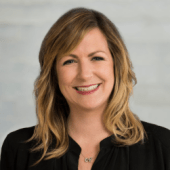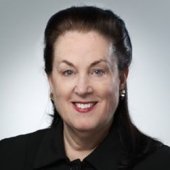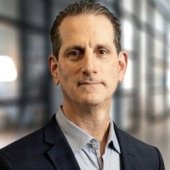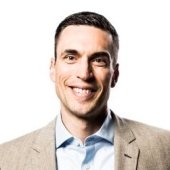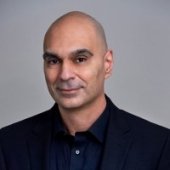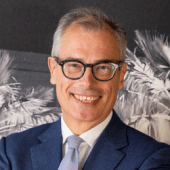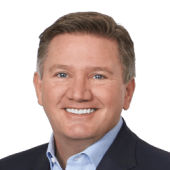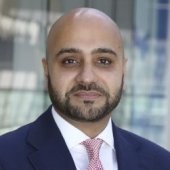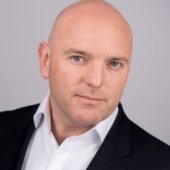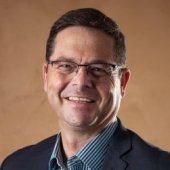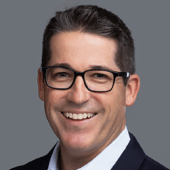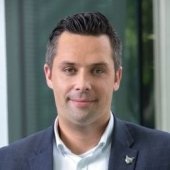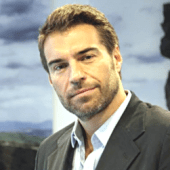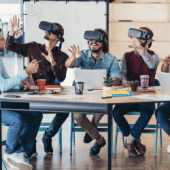View from the Vice Chair: Morgan Stanley’s Carla Harris on how we’ll work in 2030 and beyond
IN BRIEF
- 3:02 – Leadership, in particular, is going to have to be far more engaging and far more involved in defining what culture is all about.
- 6:51 – I don’t think the talent shortage will be a problem by the time we get to 2030. This is a short-term phenomenon.
- 13:12 – Last question: If you have a five-building campus, why wouldn’t you take one of those buildings and turn it into an early-childcare learning center?
Protiviti’s Fran Maxwell, Global Leader, Workforce and Organizational Transformation, interviews Carla Harris, Vice Chairman of Wealth Management and Senior Client Advisor at Morgan Stanley, about how we’ll work in 2030 and beyond. In her 30-year career, Harris has had extensive industry experiences in the technology, media, retail, telecommunications, transportation, industrial, and healthcare sectors. Maxwell and Harris cover plenty of ground including talent and technology as well as jobs and workplaces of the future, including her take on the Future of Work at Morgan Stanley.
VIEW FROM THE VICE CHAIR: MORGAN STANLEY’S CARLA HARRIS ON HOW WE’LL WORK IN 2030 AND BEYOND - Video transcript
Joe Kornik: Welcome to the VISION by Protiviti interview. I’m Joe Kornik, Editor-in-Chief of VISION by Protiviti, our content initiative where we look into the future and examine the strategic implications of big topics that will impact businesses in 2030 and beyond, as well as the decisions being made in C-suites and executive boardrooms worldwide. Today, we’re exploring the future of work and all its implication for employees, employers and the customers with whom they interact.
We’ve got an outstanding guest today as we welcome Carla Harris to the program. Carla is vice chair of wealth management and senior client adviser at Morgan Stanley. She was the chair of the Morgan Stanley Foundation from 2005 to 2014 and sits on the boards of several community organizations. In 2013, Carla was appointed by President Barack Obama to chair the National Women’s Business Council. She’s a renowned public speaker who offers guidance to corporate audiences based on her book Expect to Win. She is also, no doubt, the first gospel recording artist to appear with us, having released two albums and performed a solo concert at New York’s Carnegie Hall. I’m happy to pass off interviewing duties today to my colleague Fran Maxwell. Fran is the global lead of workforce and organizational transformation at Protiviti.
Fran Maxwell: Thanks, Joe, and thanks for being with us today, Carla.
Carla Harris: Thanks for having me, Fran.
Maxwell: So, just a handful of questions, all around the future of work. When we think about the future of work in 2030, where do you see the most impact occurring?
Harris: I see the most impact occurring, Fran, with respect to how people are working and where they are working. We will continue to have some form of hybrid model — no question about it. There is going to be a migration in a couple of years back to the office just because as humans, there’s an appetite for people to be together, and as companies try to think about what they’re going to do with the time that they have together with their employees, whether it’s time to create, innovate or ideate, or just to network or to problem-solve. The way that we spend time together in an office environment is going to be different, if we’re smart about it, and it will be more productive. That that’s going to be the biggest shift that you see — that we’re probably not going to go back to five days a week, 40 to 70 hours, inside of one building together. That’s going to be where you’ll see the biggest shift.
Maxwell: I’m curious to know your thoughts on the hybrid work model and the impact on a company’s culture. Do you have a thought on what the cultural impacts might be with the change to hybrid?
Harris: Leadership, in particular, is going to have to be far more engaging and far more involved in defining what culture is all about. Most companies — and I’m going to make a gross generalization here — have just allowed the culture that has been. If they’ve been around for 20 years or 100 years, there’s been a macro sense of the culture, and that’s been the overarching thing, with tweaks every now and then when it’s identified that there have to be tweaks.
But leadership is going to have to be far more thoughtful and intentional about, who are we today in the context that we’re working in with all the exogenous pressures and factors. And, with the fact that we have Millennials and Z-ers as the dominant population in our workforce now, who do we want to be, what do we want to stand for, and being willing to evolve that in a way that is more regular than we have done in the past.
Maxwell: What about the future of work for Morgan Stanley? Where do you envision that going?
Harris: Watching how financial services has responded throughout the COVID-19 environment and on the back of it as we move through it, it has shown itself to lag for a bit. If you think about how the technology companies and the entertainment companies and the media companies came out first, saying their employees didn’t need to be back until July 2020, then February 2021 and now March 2022, you don’t hear the financial services, of which we happen to be a part, saying the same thing. Financial services as an industry, it’s still focused on the way things were, with a public acknowledgment that there’s going to be more flexibility, but they haven’t been so quick to say what that looks like. They may not necessarily lead in this space — they may be fast followers, but I don’t expect them to innovate around the flexibility point.
Maxwell: In regard to the future of work, how do you envision artificial intelligence, automation and robotics impacting work?
Harris: Artificial intelligence, in particular, is going to play a big role as we go forward, especially in retail, because obviously, over the last couple of decades, as e-commerce has risen in its importance in that industry, now they understand what to offer you. It’s going to be really important with respect to inventory, what you sell, as well as thinking about how to engage you differently, because they now understand your appetite. It’s going to be really important in retail.
Robotics is also going to be very important in retail because if you think about what robotics could do in the warehouse, how it could make the warehouse more efficient in terms of packing, in terms of distribution, the overall supply chain, that’s one industry in particular where you’re going to see AI as well as robotics transform that industry and make a difference. AI is also going to be important in anything where there is a B2C application because, again, they understand your needs, they understand the frequency with which you buy, how you use. Whether it’s healthcare or entertainment, it’s going to be critical as we go forward.
Maxwell: Let’s shift gears again and talk about talent. There’s been a lot in the news lately around the talent shortage, the Great Resignation, etc. Do you think the talent shortage will continue to be a problem in going into 2030 and beyond?
Harris: I don’t think the talent shortage will be a problem by the time we get to 2030. This is a short-term phenomenon. The last two years, and the 18 months that we have been in a shelter-in-place protocol, has caused people to think. There’s no question that there have been issues around child care and around elder care, and around flexibility that employees never had before, and there have been so many companies and so many industries, Fran, where they’ve had record years in 2020, and they’re about to have another record year in 2021. There’s no question that you don’t have to have people in the same place to get outside productivity. Look at the company performance industry by industry by industry — the numbers do not lie.
The issue — what we have going on in the Great Resignation — is that people have had an opportunity to think, “Am I in my best and highest-use role? Is there something else I could have been doing? Did I take this job just to get a job because the economy was tough when I came out in 2008 or ’09 or ’10 as an undergrad, or when I came out of graduate school? This person over here, Bob, is actually living his best life, or he seems to be living his best life. What does that mean for me? Could I do that? I’ve already had an entrepreneurial appetite — I never had the courage to do it. Well, why not?”
You have all of this going on when people have finally had a chance to stop and think. Now, once this sorts out and we get on the other side of the COVID-19 crisis, you’re going to find people starting to settle down in the seats that they have, they’ll just stay, or they will migrate to the seats that they want or that they aspire to, or they’re going to create seats for themselves, but by the time we get to 2025, you won’t see the shortage that we have now.
Here’s another thought for you: Millennials who are younger today who are willing to take those risks, they’re going to be a little older three years from now, four years from now — certainly, nine years from now — with different appetites, different pressures. There may be a renewed appetite for the regular way, W-2, and those companies that have figured out a way to create an environment where they can get outsize productivity from the person that’s just walking in the door or the person that’s been there 15 years, that’s the industry, and the company, that’s going to win as the employer of choice.
Maxwell: Great. I hear you loud and clear. Talent shortage, we think, will work itself out. What about skills and the lack of potential skills in the industry, particularly as it pertains to AI, etc.? There will be new skills that will need to be developed in the marketplace. I’m curious about your thoughts on that shift.
Harris: The good news, Fran, is at least we’re having the conversation now. There is a growing awareness that we don’t have the talent in those spaces, and companies that choose to pursue those spaces, that want to win in those spaces, are going to have to be creative about how they develop their own workforce.
Some of the conversations that I’ve been having with companies that think they’re going to need certain technical skills or they’re going to need software programming skills, I’ve said, “Well, there are certain undergraduate institutions where they are focused on those things at the undergraduate level. What’s to stop you from naming a building or putting a building on those campuses and rotate those students who are interested through internships in the freshman year, internships in the sophomore year, internships in the junior year, and if you’ve treated them well over the course of those summers and even term time, then you’ve already created your own pipeline of talent.” So, those kinds of creative solutions — co-locating where the students are — are some of the things that those who would need those skills are going to have to do.
Maxwell: What about how work gets done, or even how jobs are constructed? Do you see a shift with large organizations rethinking how jobs get done and leveraging a contingent workforce a little more?
Harris: That’s an interesting question, because if you had asked me that question five years ago, I would have said, “Absolutely — we’re going to find ourselves in a W-9 environment, not a W-2 environment, where Bob can work three hours for that company, and Joe can work three hours for that one and then three hours later for another one, all providing the same type of skills, because those companies need them.
The reason I would have said that, Fran, is that the companies that were coming into our Multicultural Innovation Lab, there were lots of business plans around that that we saw, and I said, “A-ha! Here’s where the puck is going with respect to labor.” But I haven’t seen that as much in the last couple of years. So, my jury is out as to whether we go in that direction. There is something to be said about that kind of flexibility, but there’s also something to be said about belonging to a culture or an environment, pursuant to your earlier question.
Maxwell: How about real estate? There’s been a lot of conversations about how real estate is going to be used more moving forward, how office space is going to be used. Where do you see that going in the future?
Harris: Again, I’m putting on my innovative/creative hat. I certainly don’t think that we will necessarily need the kind of real estate that we’ve seen in the past, especially if we go to a hybrid environment, just by definition. The math says you don’t need all that corporate space. If you’re going to allow people in certain jobs to work away from that corporate space all the time and you’re going to allow some of the people to work away from that space some of the time, you certainly can come up with an algorithm that maximizes your use of space, and less of it. So, that’s just the math of the question.
But, here’s another thought for you: There’s been a lot of conversation about women leaving the workforce, and if — and I’m not saying I believe it’s 100% — it’s because of childcare, you might think of alternative uses for some of that real estate. If you have a five-building campus, why wouldn’t you take one of those buildings and turn it into an early-childcare learning center? You might outsource it to those who actually know how to do that and do it well — and there are lots of chains across the country that do that quite well — and create an opportunity that makes it easier for those who have kids under the age of six, and make it easier to attract the female workforce if that is, in fact, an issue.
Maxwell: You’ve answered all my questions, Carla. Thank you.
Harris: You’re most welcome, Fran.
Kornik: Thanks, Fran, and thanks, Carla. Carla, you’ve given us a lot to think about with some really interesting takes there on the future of work. So, thank you for your time today, and thank you for joining us at VISION by Protiviti. We appreciate it.
Carla Harris is a Vice Chairman of Wealth Management, Managing Director and Senior Client Advisor at Morgan Stanley. She was most recently a Vice Chairman responsible for increasing client connectivity and penetration to enhance revenue generation across the firm. She formerly headed the Emerging Manager Platform, the equity capital markets effort for the consumer and retail industries and was responsible for Equity Private Placements. Harris has had extensive industry experiences in technology, media, retail, telecommunications, transportation and more.
Fran Maxwell is Global Lead of the People Advisory and Organizational Change segment within the Business Performance Improvement practice at Protiviti. Based in Phoenix, he brings more than 21 years of experience in human resources consulting. Before joining Protiviti, Fran held progressive leadership roles at Willis Towers Watson (previously Towers Watson), most recently as Managing Director – Market Leader and Client Management Leader.
Did you enjoy this content? For more like this, subscribe to the VISION by Protiviti newsletter.


